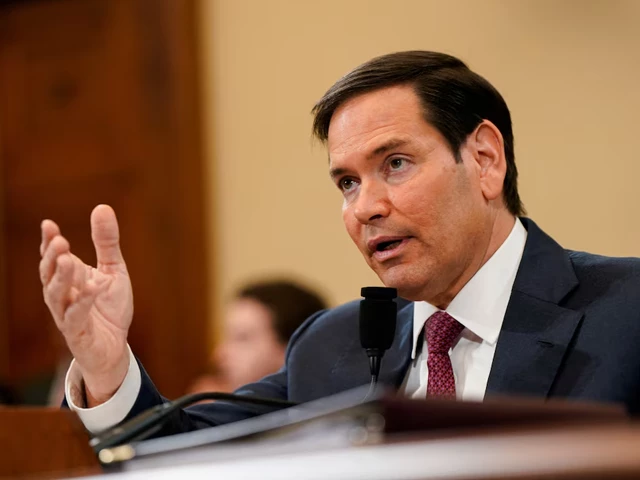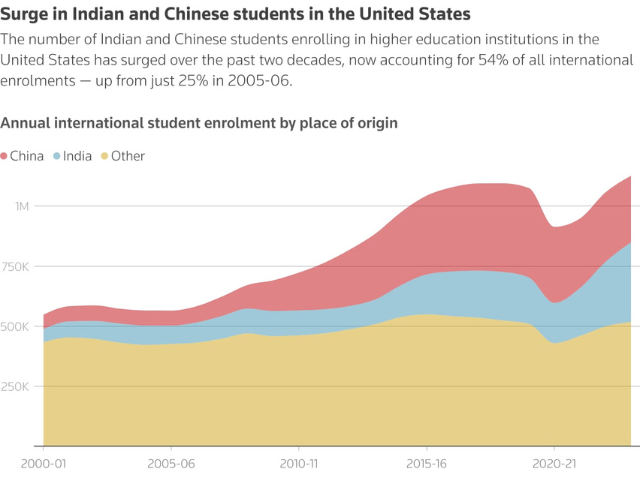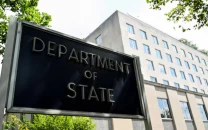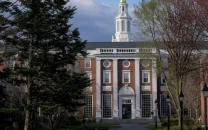US to ‘aggressively’ cancel visas for Chinese students, says Rubio
Nearly 280,000 Chinese students enrolled in American higher education institutes in the previous academic year

US Secretary of State Marco Rubio announced on Wednesday that the United States will start "aggressively" revoking visas of Chinese students, including those with connections to the Chinese Communist Party or studying in critical fields.
The U.S. will begin revoking visas of Chinese students, including those with connections to the Chinese Communist Party or studying in critical fields.
— Secretary Marco Rubio (@SecRubio) May 28, 2025
President Donald Trump's administration has sought to ramp up deportations and revoke student visas as part of wide-ranging efforts to fulfill its hardline immigration agenda.
If applied to a large portion of the hundreds of thousands of Chinese students studying at US universities, the measure could significantly impact a vital revenue stream for US educational institutions and disrupt an important talent pool for US tech firms.
READ: US to impose visa bans on foreign nationals censoring Americans, says Rubio
China ranked second in the number of international students enrolled in US higher education during the 2023/2024 academic year, with 277,398 students, according to data from the Institute of International Education.
Rubio also mentioned that the criteria for future visa applicants from China and Hong Kong would be tightened to increase scrutiny.
Additionally, the administration has blocked hundreds of millions of dollars in funding to universities. The president has criticized some of the country’s top institutions, such as Harvard, claiming they are overly liberal and have not done enough to address antisemitism on campus.
"The US State Department will work with the Department of Homeland Security to aggressively revoke visas for Chinese students," he said.
The Chinese Embassy in Washington did not immediately respond to a request for comment.
READ MORE: US halts new student visa appointments amid social media vetting
China's foreign ministry previously vowed to "firmly safeguard the legitimate rights and interests" of its students overseas, following the Trump administration's move to revoke Harvard University's ability to enroll foreign students, many of whom are Chinese.
China is also at the epicenter of Trump's global trade war that has roiled financial markets, upended supply chains and fueled risks of a sharp worldwide economic downturn.
The decision to cancel Chinese student visas comes despite a recent pause in the US-China trade dispute.
International students - India and China together accounting for 54% of them - contributed more than $50 billion to the US economy in 2023, according to the US Department of Commerce.

Photo: Reuters Chart shows the number of students from China, India and other places enrolled in higher education institutions in the Unites States every year from 2000-01 to 2023-24
The State Department has broad authority to issue and revoke visas. The administration last week cited Harvard University's ties to China as among several reasons for revoking its ability to enroll foreign students, a move temporarily blocked by a US judge.
Rubio's statement did not offer details on how extensively the visa revocations would be applied. Even a relatively small number could disrupt the flow of Chinese students seeking out higher education in the US that began in the late 1970s from Communist-governed China.
Recent decades saw the United States become the destination of choice for many Chinese students looking for an alternative to China's intensely competitive university system and drawn to the strong reputation of US schools. Those students typically come from wealthier families able to afford the high cost of US universities.
























COMMENTS
Comments are moderated and generally will be posted if they are on-topic and not abusive.
For more information, please see our Comments FAQ